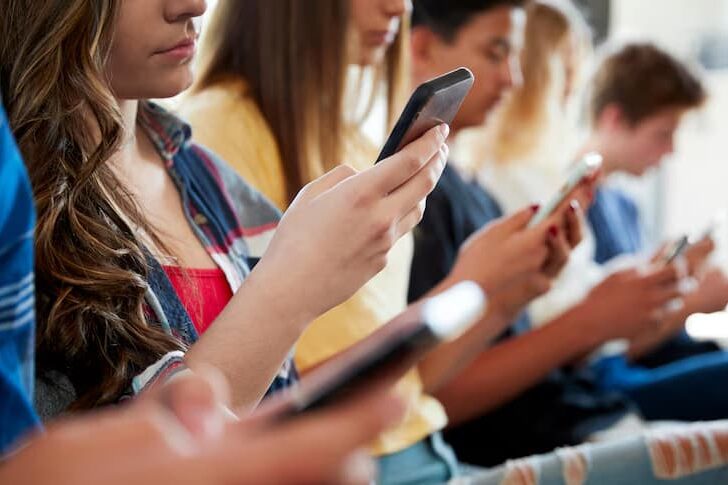Social media platforms have revolutionized how adolescents interact, communicate, and perceive the world around them. With the touch of a screen, teenagers can now connect with peers across the globe, share experiences, and access a wealth of information. This unprecedented level of connectivity has fundamentally altered the landscape of adolescent social dynamics, offering both opportunities and challenges for mental well-being.
While social media provides a platform for self-expression and community building, it exposes young minds to potential pitfalls. The constant stream of carefully curated content can lead to unrealistic comparisons and heightened feelings of inadequacy. Moreover, the instant gratification of likes and comments can create a dopamine-driven feedback loop, potentially fostering addictive behaviors and negatively impacting self-esteem.
Table of Contents
Positive Effects of Social Media on Adolescent Mental Well-Being
Enhanced Connectivity and Support

Improved Self-Expression and Identity Formation
Social media enables teens to express themselves through curated profiles, shared content, and digital art, contributing to identity formation – a vital aspect of adolescent development. Exposure to diverse perspectives online can also broaden teenagers’ worldviews, fostering a nuanced understanding of different lifestyles.
Access to Mental Health Resources and Information
It’s easy to access mental health resources and information. Many platforms host accounts dedicated to mental health awareness, offering tips, coping strategies, and educational content. This accessibility can help destigmatize mental health issues and encourage adolescents to seek help when needed. Furthermore, social media campaigns and influencers focused on mental health can raise awareness about important issues, potentially saving lives by providing crucial information and support to vulnerable teens.
Negative Impacts of Social Media on Adolescent Mental Health
Increased Anxiety and Depression
Social media’s constant connectivity can lead to heightened anxiety and depression among adolescents. The pressure to maintain an online presence and garner likes and followers can be overwhelming. Studies have shown a correlation between increased social media use and higher rates of anxiety and depressive symptoms in teens. This digital stress can manifest in physical symptoms like disrupted sleep patterns and decreased appetite.
Cyberbullying and Online Harassment
The anonymity and distance provided by social media platforms can embolden bullies, leading to widespread cyberbullying. Adolescents are particularly vulnerable to online harassment, which can have severe consequences on their mental health and self-esteem. Unlike traditional bullying, cyberbullying can follow teens into their homes, providing no respite from the torment.
Unrealistic Body Image and Self-Esteem Issues
Social media is rife with carefully crafted and often edited images that present unrealistic beauty standards. Adolescents who are already navigating complex body image issues may find themselves comparing their appearance to these idealized representations. This constant comparison can lead to decreased self-esteem, body dysmorphia, and even eating disorders.
FOMO and Social Isolation
Social media exacerbates the “Fear of Missing Out” (FOMO). Teens may feel compelled to constantly check their devices, decreasing face-to-face interactions and potentially increasing feelings of loneliness. Paradoxically, while social media promises connection, it can lead to social isolation and disconnection from real-world relationships.
Addiction and Impaired Social Skills
Excessive use of social media can lead to addiction-like behaviors in adolescents. This overreliance on digital interactions may impair the development of crucial social skills and emotional intelligence. As teens spend more time online, they may struggle with in-person communication, empathy, and conflict resolution–essential skills for mental well-being and future success.
While social media can offer some benefits to adolescents, the potential risks to their mental health are significant and should not be ignored. If you or a teen you know is struggling with the negative impacts of social media, teen therapy can provide a safe and supportive space to explore these challenges, develop healthy coping mechanisms, and build resilience in the digital age. Book a consultation today to learn more.


